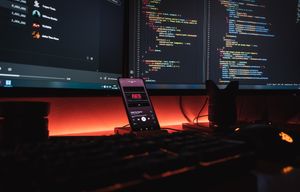Pluralsight and FrontendMasters and LeetCode and CodeCademy and Udemy
At least 50% off from FlexSub
Subscribe Now
Welcome to our essay on the 8 behaviours of highly effective developers, readers and developers alike. After authoring numerous articles on development, we decided to write this one to show you some of the practises of productive developers. We'll go over each habit with the appropriate justifications. Each behaviour is a talent that a developer can learn. We sincerely hope that you can incorporate these routines into your daily life. There is no particular order to these bad habits. So let's get started without wasting your valuable time.
1, Divide And Conquer
The ability to solve difficulties is a necessary quality for a successful developer. What we're discussing here is the process of breaking a big issue down into manageable parts. Any difficulty can be effectively solved if it is broken down into smaller components. In order to address the primary problem, we must also combine the solutions to all of the smaller difficulties. An efficient developer needs to be skilled at this process of breaking down tasks into modules and later aggregating them.
2, Save Your Code
You might be wondering why we added saving code as a habit. To answer your question, we mean saving code to version control systems like GitHub. There is a good probability that people will catch the foolish coding errors you make if you save and share your code in public. Later on, you'll start polishing your code and advance to the level of competent developer. Some programmers find it difficult to hear criticism of their work, but keep in mind that the only way to get better is to save and share your code. To start sharing your work, all you need is a GitHub account and some familiarity with the Git tools.
3, Find Repeating Patterns
Finding repeated patterns in code and solving them with generic solutions is one of the most crucial abilities that an effective developer must have. We already have a wide variety of design patterns at our disposal to address recurring issues, but knowing when to use them calls for actual skill. Although it takes a lot of time to learn and master all design patterns, it is the most important talent for developers.
4, Effective Communication
An effective developer's daily routine includes communicating with others, including other developers. One needs to develop effective communication skills. A surplus of communication wastes time and negatively affects productivity. Utilizing social media might not be a good option because you risk wasting additional time. In your free time, check your email frequently, but avoid responding to every message. The issues in the emails will fix themselves if you give them some time to do so.
5, Automate Boring Tasks
As a developer, you can use scripts or little programmes to automate boring, repetitive activities. For instance, you can use batch files or scripts to carry out activities like copying a specific file to a server or deleting log files. More coding time will be available to you by automating these activities.
6, Visualize And Test Your Code
The ability to envision and do effective testing of his code is the next great habit a developer should have. A great developer will write every potential test case and then test their code. Only testing with actual data will reveal whether everything is operating as intended. A good developer needs to comprehend code from the tester's point of view. Your expertise of the project will improve as a result of communication with testing resources.
7, Do Not Repeat Yourself
A fundamental idea in programming is this. We should strive to avoid repetition when developing code or carrying out any other responsibilities. By doing this, code duplication and the ambiguities it can bring are avoided. A nice way to put this notion into practise is to write methods or functions that are general to a group of problems. Avoiding duplicate code will speed up and simplify debugging of our programme.
8, Always Provide Proper Indentation
The next behaviour we'll discuss is correctly indenting your code. You must leave enough space between lines of code you write in order for it to be readable. Split lengthy lines of code into more understandable, shorter lines of code. Keep your variables, literals, and keywords spaced consistently. To better comprehend coding standards, read other people's code.
Concluding Thoughts
In this article, we've seen 10 excellent behaviours for developing quickly. Additionally, we described each behaviour. Hope you enjoyed reading this article. I wish you the best of luck in your endeavour to become a skilled developer.
Pluralsight and FrontendMasters and LeetCode and CodeCademy and Udemy
At least 50% off from FlexSub
Better, flexible and cheaper subscriptions for a wide range of services in just a click of a button.
Get started now



